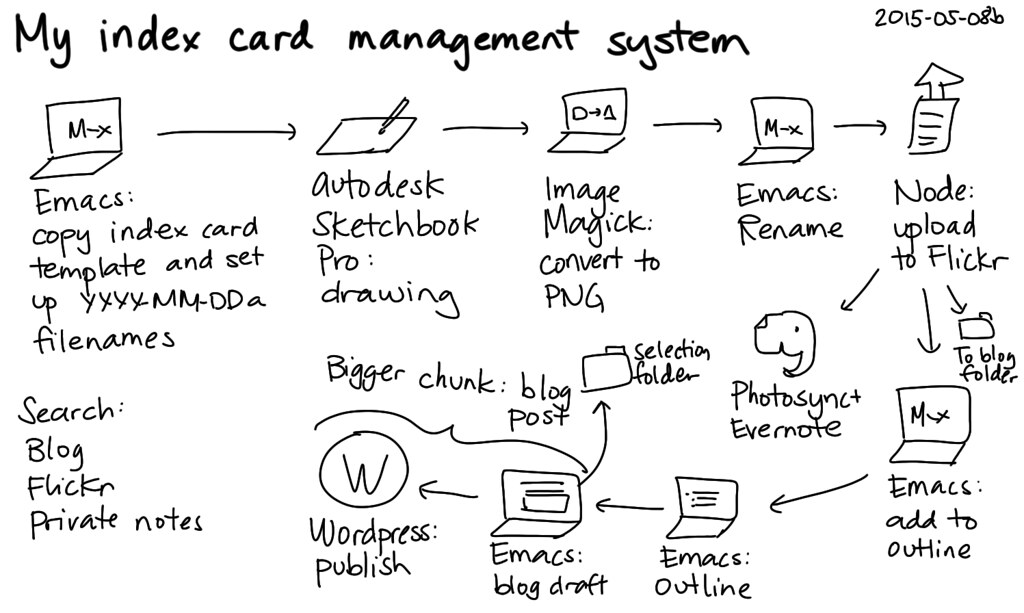5 Advantages and Disadvantages of Firewall | Drawbacks and …
Any computer that connects to an internet connection is vulnerable to attacks. Some computers can be more vulnerable than the other. In order for protecting against them there must be a system that should act as a gateway between the user and the internet.
What is Firewall? Basically firewall is a type of wall which prevents hackers from attacking a network. Perhaps it is one of the best protections ever made to stand out against the internet threats. Including cyber attacks it prevents your computer from various other threats surrounding on the there are vast majority of the benefits provided by the firewall there can be other drawbacks as well. Understanding both the benefits and the drawbacks will help you to use the tool better for acquiring the best out of your business.
In this article, I will be illustrating the 5 Advantages and Disadvantages of Firewall | Drawbacks and Benefits of Firewall. Finally from this article, you will know the pros and cons of using firewall.
Let’s get started,
Advantages of Firewall
1. Monitor Traffic
A major responsibility of a firewall is to monitor the traffic passing through it. Whatever the information traveling through a network is in the form of packets. Firewall inspects each of these packets for any hazardous threats. If any chance the firewall happens to find them it will immediately block them.
2. Protection against Trojans
Malwares especially the type Trojans are dangerous to a user. A Trojan silently sits on your computer spying over all the works you do with it. Whatever the information they gather will be sent to a web server. Obviously you will not know their presence until the strange behaviours of your computer. A firewall in this instance will immediately block Trojans before they cause any damages to your system.
Hackers on the internet constantly look for computers in order for carrying out their illegal activities. When the hackers happen to find such computers they will start to do even malicious activities such as spreading viruses. Apart from those hackers there can be unknown people such as the neighbours looking out for an open internet connection. Hence, to prevent such intrusions it is a good idea to be with a firewall security.
Firewalls comes with an access policy that can be implemented for certain hosts and services. Some hosts can be exploited with the attackers. So the best in case is to block such hosts from accessing the system. If a user feels that they need protection from these types of unwanted access, this access policy can be enforced.
5. Better Privacy
Privacy is one of the major concerns of a user. Hackers constantly look out for privacy informations for getting clues about the user. But by using a firewall many of the services offered by a site such as the domain name service and the finger can be blocked. Hence, the hackers are with no chance of getting privacy details. Additionally firewalls can block the DNS informations of the site system. Due to this the names and the IP address will not be visible to the attackers.
Disadvantages of Firewall
1. Cost
Firewalls does have an investment depending on the types of it. In general hardware firewalls are more expensive than the software firewalls. Besides that hardware firewalls require installations and maintenance which can be costly. These types of configurations cannot be done without an expert IT employee. Comparing this to a software firewall, there is no much investment and it is easy enough for an average user to deploy them.
2. User Restriction
It is no doubt that firewalls prevent unauthorized access to your system from the network. While this can be advantageous for an average user, this can actually be a problem for large organizations. The policies used by the firewall cab be strict enough to prevent employees from doing certain operations. As a result of this, the overall productivity of the company an be affected severely. Sometimes this can also prompt employees from using backdoor exploits. However this can lead to security problems since the data travelled through these backdoor exploits are not examined properly.
3. Performance
Firewalls especially the software based has the capability to limit your computer’s overall performance. The processing power and the RAM resources are some of the factors which decides the computer’s overall performance. When the software firewalls constantly run on the background they consume more the processing power and the RAM resources. This can lead to a diminished system performance. However hardware firewalls does not impact the system performance since they do not rely upon the computer resources.
4. Malware Attacks
Even though firewalls has the capability to block the basic types of trojans, it is proved to be defenseless against other types of malwares. These types of malwares can enter your system in the form of trusted data. Therefore, even if you have firewall, it is still recommended to have an anti-malware software installed on your PC. Because the only way to remove them is through an anti-malware scan.
5. Complex Operations
Even though for small businesses the firewall maintenance is made easy, it is definitely not for large organizations. Firewalls for large organizations require separate set of staffs for operating them. These people make sure that the firewall is safe enough to protect the network from intruders.

Understanding Firewalls for Home and Small Office Use | CISA
Using a firewall in conjunction with other protective measures can help strengthen your resistance to attacks.
When your computer is accessible through an internet connection or Wi-Fi network, it is susceptible to attack. However, you can restrict outside access to your computer—and the information on it—with a firewall.
What do firewalls do?
Firewalls provide protection against outside cyber attackers by shielding your computer or network from malicious or unnecessary network traffic. Firewalls can also prevent malicious software from accessing a computer or network via the internet. Firewalls can be configured to block data from certain locations (i. e., computer network addresses), applications, or ports while allowing relevant and necessary data through. (See Understanding Denial-of-Service Attacks for more information. )
What type of firewall is best?
Categories of firewalls include hardware and software. While both have advantages and disadvantages, the decision to use a firewall is more important than deciding which type you use.
Hardware – Typically called network firewalls, these physical devices are positioned between your computer and the internet (or other network connection). Many vendors and some internet service providers (ISPs) offer integrated small office / home office routers that also include firewall features. Hardware-based firewalls are particularly useful for protecting multiple computers and controlling the network activity that attempts to pass through them. The advantage of hardware-based firewalls is that they provide an additional line of defense against attacks reaching desktop computing systems. The disadvantage is that they are separate devices that require trained professionals to support their configuration and maintenance.
Software – Most operating systems (OSs) include a built-in firewall feature that you should enable for added protection, even if you have an external firewall. Firewall software is also available separately from your local computer store, software vendor, or ISP. If you download firewall software from the internet, make sure it is from a reputable source (i. e., an established software vendor or service provider) and offered via a secure site. (See Understanding Website Certificates for more information. ) The advantage of software firewalls is their ability to control the specific network behavior of individual applications on a system. A significant disadvantage of a software firewall is that it is typically located on the same system that is being protected. Being located on the same system can hinder the firewall’s ability to detect and stop malicious activity. Another possible disadvantage of software firewalls is that—if you have a firewall for each computer on a network—you will need to update and manage each computer’s firewall individually.
How do you know what configuration settings to apply?
Most commercially available firewall products, both hardware and software based, come preconfigured and ready to use. Since each firewall is different, you will need to read and understand the documentation that comes with it to determine whether the default firewall settings are sufficient for your needs. This is particularly concerning because the “default” configuration is typically less restrictive, which could make your firewall more susceptible to compromise. Alerts about current malicious activity (e. g., CISA’s Alerts) sometimes include information about restrictions you can implement through your firewall.
Though properly configured firewalls may effectively block some attacks, do not be lulled into a false sense of security. Firewalls do not guarantee that your computer will not be attacked. Firewalls primarily help protect against malicious traffic, not against malicious programs (i. e., malware), and may not protect you if you accidentally install or run malware on your computer. However, using a firewall in conjunction with other protective measures (e. g., antivirus software and safe computing practices) will strengthen your resistance to attacks. (See Good Security Habits for more information. )
Please share your thoughts.
We recently updated our anonymous product survey; we’d welcome your feedback.

5 Advantages and Disadvantages of Firewall | Drawbacks and …
Any computer that connects to an internet connection is vulnerable to attacks. Some computers can be more vulnerable than the other. In order for protecting against them there must be a system that should act as a gateway between the user and the internet.
What is Firewall? Basically firewall is a type of wall which prevents hackers from attacking a network. Perhaps it is one of the best protections ever made to stand out against the internet threats. Including cyber attacks it prevents your computer from various other threats surrounding on the there are vast majority of the benefits provided by the firewall there can be other drawbacks as well. Understanding both the benefits and the drawbacks will help you to use the tool better for acquiring the best out of your business.
In this article, I will be illustrating the 5 Advantages and Disadvantages of Firewall | Drawbacks and Benefits of Firewall. Finally from this article, you will know the pros and cons of using firewall.
Let’s get started,
Advantages of Firewall
1. Monitor Traffic
A major responsibility of a firewall is to monitor the traffic passing through it. Whatever the information traveling through a network is in the form of packets. Firewall inspects each of these packets for any hazardous threats. If any chance the firewall happens to find them it will immediately block them.
2. Protection against Trojans
Malwares especially the type Trojans are dangerous to a user. A Trojan silently sits on your computer spying over all the works you do with it. Whatever the information they gather will be sent to a web server. Obviously you will not know their presence until the strange behaviours of your computer. A firewall in this instance will immediately block Trojans before they cause any damages to your system.
Hackers on the internet constantly look for computers in order for carrying out their illegal activities. When the hackers happen to find such computers they will start to do even malicious activities such as spreading viruses. Apart from those hackers there can be unknown people such as the neighbours looking out for an open internet connection. Hence, to prevent such intrusions it is a good idea to be with a firewall security.
Firewalls comes with an access policy that can be implemented for certain hosts and services. Some hosts can be exploited with the attackers. So the best in case is to block such hosts from accessing the system. If a user feels that they need protection from these types of unwanted access, this access policy can be enforced.
5. Better Privacy
Privacy is one of the major concerns of a user. Hackers constantly look out for privacy informations for getting clues about the user. But by using a firewall many of the services offered by a site such as the domain name service and the finger can be blocked. Hence, the hackers are with no chance of getting privacy details. Additionally firewalls can block the DNS informations of the site system. Due to this the names and the IP address will not be visible to the attackers.
Disadvantages of Firewall
1. Cost
Firewalls does have an investment depending on the types of it. In general hardware firewalls are more expensive than the software firewalls. Besides that hardware firewalls require installations and maintenance which can be costly. These types of configurations cannot be done without an expert IT employee. Comparing this to a software firewall, there is no much investment and it is easy enough for an average user to deploy them.
2. User Restriction
It is no doubt that firewalls prevent unauthorized access to your system from the network. While this can be advantageous for an average user, this can actually be a problem for large organizations. The policies used by the firewall cab be strict enough to prevent employees from doing certain operations. As a result of this, the overall productivity of the company an be affected severely. Sometimes this can also prompt employees from using backdoor exploits. However this can lead to security problems since the data travelled through these backdoor exploits are not examined properly.
3. Performance
Firewalls especially the software based has the capability to limit your computer’s overall performance. The processing power and the RAM resources are some of the factors which decides the computer’s overall performance. When the software firewalls constantly run on the background they consume more the processing power and the RAM resources. This can lead to a diminished system performance. However hardware firewalls does not impact the system performance since they do not rely upon the computer resources.
4. Malware Attacks
Even though firewalls has the capability to block the basic types of trojans, it is proved to be defenseless against other types of malwares. These types of malwares can enter your system in the form of trusted data. Therefore, even if you have firewall, it is still recommended to have an anti-malware software installed on your PC. Because the only way to remove them is through an anti-malware scan.
5. Complex Operations
Even though for small businesses the firewall maintenance is made easy, it is definitely not for large organizations. Firewalls for large organizations require separate set of staffs for operating them. These people make sure that the firewall is safe enough to protect the network from intruders.
Frequently Asked Questions about firewall advantages and disadvantages
What are advantages of firewalls?
Firewalls provide protection against outside cyber attackers by shielding your computer or network from malicious or unnecessary network traffic. Firewalls can also prevent malicious software from accessing a computer or network via the internet.Nov 14, 2019
What is the main disadvantage of traditional firewalls?
Firewalls does have an investment depending on the types of it. In general hardware firewalls are more expensive than the software firewalls. Besides that hardware firewalls require installations and maintenance which can be costly.Mar 1, 2020
What is the disadvantage of hardware firewall *?
Disadvantage of hardware firewalls: Cost. Normally, a dedicated hardware firewall costs more than a software firewall. Difficult to install, and upgrade. Takes up physical space, and involves wiring.

